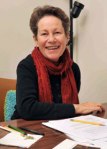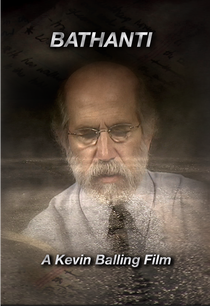By Joseph Bathanti
Today I was back at Watauga High in Boone with the amazing Ms. Whitaker and another of her precocious sophomore classes. I started out by reading a poem of mine called “Knocked,”and also distributed Theodore Roethke’s “My Papa’s Waltz.” and Robert Hayden’s“Those Winter Sundays”. The last two are poems we all know and, I daresay, cherish. Since Roethke’s poem is tightly metrical, and Hayden’s has a decidedly looser gait, though permeated with the same aural pop as Roethke’s, it gave me the chance to talk a bit about formalism versus free verse, distinctions between the two, and what is sacrificed and what is gained in electing to write in one or another. In talking about fathers, I find myself inevitably talking about mothers, about parents, and so I had the students write their own poems about their mothers or fathers or both. There’s always a lot to learn from the innocent spin, the unvarnished honesty, the courage and imagination, of these very young writers.
I’m on the road quite a bit, but today I’m in Boone where I teach at Appalachian State University, and I want to mention a very little known fact about Boone and its intersection with the great poet, Philip Levine, who presided from 2011 to 2012 as the United States Poet Laureate. I could go on about Levine, a poet who consistently champions the working class – those men and women seemingly forgotten and often vilified (like those men in the first three poems in the paragraph above). In his extraordinary poems, he restores them to an exalted status. Here’s Levine excerpted from a March 10, 2008 interview conducted by Sally Dawidoff and published in Poets and Writers (online):
“I mean, you’re never going to pick up a poem of mine (unless it’s a comic poem) about wine mavens, right? Or real estate agents, you know, or CEOs. They’re going to be autoworkers, or they’re going to be guys working on a construction site or women complaining about how the grease eats into their hands because of the jobs they do. So there’s this whole social class I think that you would recognize, of the characters who move through my poems. As far as landscape goes, there’s New York now, there’s Detroit, there’s California, there’s Spain—the places that I’ve lived. There’s even North Carolina; I lived there for a while.”
I love what he has to say, but that reference to North Carolina stopped me in my tracks. A number of years ago, my colleague and good friend in the English Department at ASU, Dr. Leon Lewis, remarked to me anecdotally that Philip Levine’s second marriage had taken place in Boone, and that Levine had published a poem about it in The New Yorker. It is important to note that Leon is a formidable poetry scholar, the author of a number of books, a man who seems to have read every poem ever written, up to this very moment, and has published commentary on many of them
While I have yet to track down that poem, I did a little sleuthing, with the enormous help of Leon, and we turned up that Levine had, indeed, married actress Frances J. Artley in Boone in 1954. This information came from Readings in Contemporary Poetry, an utterly astonishing site where you can listen to dozens of poets read their work: http://www.diaart.org/programs/main/19. The reference went on to say that Artley was involved in “costuming” for an “outdoor drama.” From these few leads, Leon and I extrapolated that she had been connected with Kermit Hunter’s outdoor drama, Horn in the West, that premiered in Boone in 1952, and has been performed every summer since. As Leon said, however, “It’s that elusive (if it even exists) poem that is the key.”
Here’s a look at Levine, just a little over a month ago, paired with some fine jazz: Poetry and Jazz: Three Poems by Philip Levine. And I can’t refrain from pointing out that he’s accompanied by the Benjamin Boone Evolution Quartet.
I am so pleased to wish a hearty Happy Birthday to Holly Iglesias, born on April 2, and doubly pleased to present her prose poem, “Hit Parade,” seen here for the first time.
Hit Parade
It began with Gunsmoke, with Straw Hat cologne and Perry Como, and grandparents on tree- lined streets, dying one by one, all of them, then all the little girls on their way to church and all the presidents and all the colored men on the march into history, an incessant now glowing on small screens in every living room, dogs off the leash, flags in flames, murder bloating to slaughter as though a single bullet wanted us all, the coed bleeding into the grass of an Ohio hillside and the naked child on fire on the other side of the world, running toward the camera, our entire past melting into abstraction.
Holly Iglesias, author of Angles of Approach and Souvenirs of a Shrunken World, is the recipient of an NEA Fellowship. She teaches in the Master of Liberal Arts Program at UNC-Asheville.




